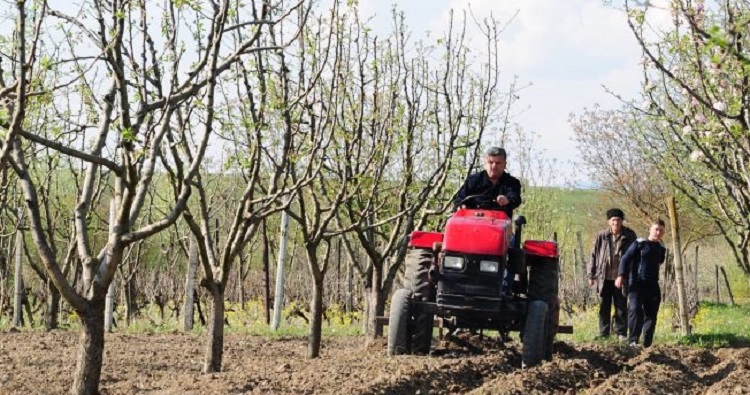Over 700 Georgian farmers trained in 2020 with support of FAO, EU

The EU is supporting agriculture and rural development in Georgia through its ENPARD programme, the main goal of which is to provide economic opportunities in rural areas and reduce poverty in Georgia. Photo: enpard.ge.
Over 700 Georgian farmers participated in training programmes last year organised by the Food and Agriculture Organization (FAO) with the support of the European Union (EU), under the ENPARD programme.
Trainings concerned soil preparation and seed selection, irrigation, harvesting, post-harvest storage, transportation to markets and other issues.
Sessions were also about climate-smart agricultural methods such as drip irrigation, minimum tillage, no tillage, mulching, and integrated pest management practices were carried out in eleven municipalities of Kakheti, Kvemo Kartli, Shida Kartli, Imereti, Guria and Adjara.
With more than 40 demonstration plots established in various regions of Georgia, the country's farmers have had the opportunity to observe and learn the best agricultural practices in the field first-hand. Many of these farmers have already succeeded in bringing these modern innovations to their plots and enjoyed the benefits,” says the delegation of the European Union to Georgia.
Special training was provided to hazelnut growers in the Kakheti region. 263 farmers participated in these sessions which included theoretical introduction to hazelnut growing and care, postharvest handling and pruning of hazelnut trees of different ages and others.
New technologies are being introduced to farmers through a network of demonstration plots and more effective extension methods. As a result, beneficiary farmers are collecting up to 40% larger and better quality yields with 30% lower costs,” said Georges Dehoux, Programme Manager for Agriculture, Fisheries and Food Safety at the Delegation of the European Union to Georgia.
Georgian farmers can and should make more profits from agricultural production. The new agricultural approaches and solutions introduced with FAO and EU support allow farmers to get better harvests and save more money. I can’t stress enough how important it is considering the challenges tied to COVID-19,” said FAO-EU Project Coordinator Javier Sanz Alvarez.
As a result of the programme, drip irrigation systems, bed formation and mulching, were introduced in several locations, as well as installation of drip irrigation and innovation such as no-tillage methods (involve the minimal disturbance of soil, as opposed to traditional deep plowing. It is not only cost-efficient, but also protects the soil from erosion, and reduces the risk and impact from short draughts) for sowing wheat, barley, maize, and others were introduced.
The EU is supporting agriculture and rural development in Georgia through its ENPARD programme, the main goal of which is to provide economic opportunities in rural areas and reduce poverty in Georgia.
 Tweet
Tweet  Share
Share